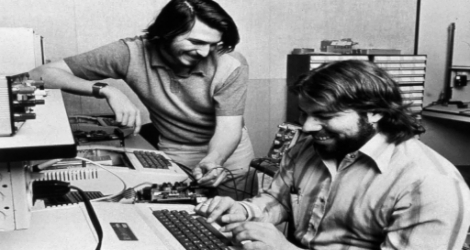What it is like to be “part of something big” is that you don’t have to be a large company to accomplish this rare feat. I recall an article many years ago about a group of major drycleaning chains that combined plants and wrote a piece on how great it was to be “part of something big.” I won’t name the names but most of us remember them. Subsequently, many more plants combined under different corporate names and continued to grow. Well, sort of. Before the 1980’s and since the 2000’s, there continues to be consolidation and I suppose there will always be that part of corporate America trying to blend together. Usually it is a result of failing smaller plants or Mom and Pop just wanting to retire and don’t give a hoot who buys it at that point. Pop took a powder and retired to the chicken ranch. Or at least that is what I would have done! The tragedy is that these conglomerates are mostly gone now.
The sadder part of that story of consolidation is that few of these corporate giants that were going to show us ignoramuses how we did everything wrong for 50 years – are not here to be laughed at. They failed. I wonder why? I thought it was great to be “part of something big?” Well folks it really is – if you do it right. I plan to tell you about many people I know that are a “part of something big” and never grew in size or customers. It can happen. It has always and always will be possible to be the leader of your city if you plan carefully and not want to own everything and everybody. That’s setting your goals a bit high. Realistically, it can be done with careful thought and planning.
No More New Customers
I am proud to know a great deal of plant owners in the United States that have a sign that reads,” No more new customers. In order to serve our current customers right, we cannot accept any new customers. Thank you and check again.” Don’t think I am kidding because I am not. These operators and customers are as “happy as a blind cat in a dairy.” They are not stuffed with overrun specials. They take 3-5 days to process. A special “rush job” is 3 days. Ridiculous you think? Think not! You may be surprised how many people today aren’t in so big a hurry when they latch on to someone who treats their clothes as if they were their own. I’ve always said, “Customers are like cattle, they go where you lead them.” I know, it’s a corny typical Kenney’ism, but trust me brother and sister, it is true. I suggest some folks spend less time trying to keep up with the Joneses and act so modern and high and mighty and try on a bit of simple corn pone. Life need not be so haughty. Newer and bigger is not always better.
One thing is for sure friends; you can’t get all the customers. There are too many of us these days. Too many plants and stores. Your best bet is to focus on maintaining your loyal customers rather than think volume. Oh yes, I know, volume is great but you will make more money, sleep better and work less hard if you focus on the few who will stay with you. Frankly, now that I think about it, it is the same way with employees. For those who employ many, many people, is it not a headache? Who will show up Monday morning? Who will show up Friday morning? Who will show up at all? Who works the hardest? Who will be loyal and honest to me?
Price For Garment, Not Volume
Price not for volume you say? Are you nuts? No I am not chief. Price your garments for the amount of work and risk involved and takes in consideration the economy. You cannot remain in the dark ages with your prices. Notice everyone around you is charging you more for what you buy. Everyone except Mr. Drycleaner it seems. Don’t run scared. Operate with confidence and join my friends who don’t need any additional customers because they price for work and charge a decent amount for the garments they produce. In the old days a 3-day turnaround was not unusual. A special (rush job) was one day. Normal turnaround time was 5 days. Getting the garments back to them in a rush in most cases means they hang on your conveyor for another 3 weeks. They smell of solvent because we are in such a hurry to “bag and tag ’em.” Let them hang overnight and put someone onto bagging the next morning when possible. I realize this scenario will not work in high volume plants, but for you small operators, it will.
Lest I be accused of not wanting to be a defender of the status quo, I will tell you that everyone is not up to this task. Wham bam cleaning and ramming them through the plant in a couple of hours will always attract certain operators. My prediction is that with the way people behave today and our economy flounders, customers will be looking for someone who dotes on their clothes, not rushes them. I may be wrong, but I don’t think so. Let me know what you think.
I’m headin’ to the wagon now, these boots are killin’ me!

